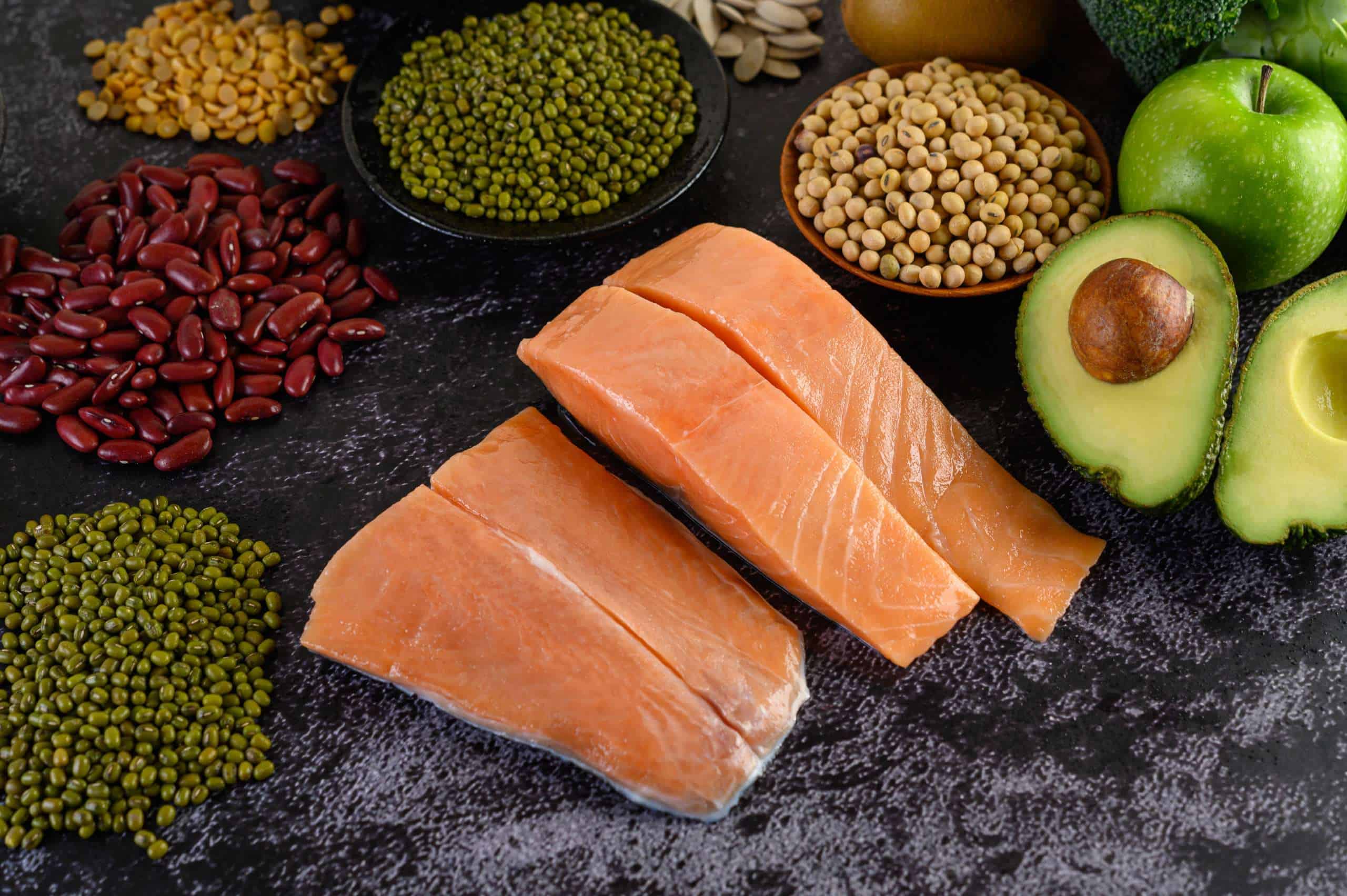
Omega-3, Omega-6 and Omega-9 fatty acids are referred to as “healthy fats” that are necessary for the body to function properly. Unlike unhealthy saturated fats, they have extremely positive effects. They protect the nervous system and heart, regulate blood pressure, affect the immune system and in a positive way affect the eyesight. Unfortunately, we are not able to produce them ourselves. What else is worth knowing about them?
Omega-3 fatty acids include, among others: ALA (alpha linolenic acid; it is a powerful oxidant that effectively slows down the aging process of the body), EPA (eicosapentaenoic acid; it plays a key role when it comes to the work of the cardiovascular system) and DHA (docosahexaenoic acid; a building block of nervous tissue; it plays a particularly important role during fetal life and early childhood).
What functions do Omega-3 fatty acids have? They normalize blood pressure, have an anti-inflammatory and anti-coagulant effect, reduce the concentration of triglycerides in the blood, inhibiting their synthesis in the intestines and liver, protect against obesity, inhibit the development of coronary heart disease and ischemic heart disease, have a beneficial effect on the skin, have an antidepressant effect, protect against vision defects and macular degeneration, have an anti-atherosclerotic effect, have an anti-allergic effect, and support the work of the brain by improving its blood supply and protecting against dementia.
Adequate supply of Omega-3 fatty acids is crucial during fetal life and in the first years of a child’s life. Their deficiency during pregnancy can result in various disorders of the nervous system, neonatal retinopathy or premature birth. Extremely important is the role of omega-3 fatty acids in supporting children’s immunity. EPA contained in them effectively inhibits the formation of pro-inflammatory substances, protecting children’s bodies from various diseases.
In adults, Omega-3 deficiency may result in depression, aggression attacks, and problems with concentration and memory. Diabetics, smokers, obese people and those with high blood pressure should especially remember to take them.
Good sources of Omega-3 fatty acids include fatty marine fish such as herring, salmon, mackerel, trout and tuna, walnuts, almonds, flaxseed oil, rapeseed oil, peanut oil, soybean oil, walnut oil and wheat germ oil.
The key omega-6 fatty acids for the human body are: LA (linoleic acid; it is a powerful antioxidant that protects against obesity, inhibits the development of cancer, and protects against the development of complications in diabetes), GLA (gamma-linolenic acid; it positively affects the condition of the skin), and ARA (arachidonic acid; it is a building block of cell membranes and affects the regulation of contractility of blood vessels).
Omega-6 fatty acids have anti-inflammatory properties, stabilize blood pressure, strongly reduce the level of bad cholesterol, protect against stroke and heart attack, relieve symptoms of autoimmune diseases, support the treatment of diabetic neuropathy and help maintain hair, skin and nails in good condition.
The best sources of Omega-6 fatty acids are sunflower, coconut, peanut, canola, soybean, corn and grapeseed oils, olive, avocado, almond, sesame, and peanut.
Omega-9 is a monounsaturated acid. It is conditionally classified as an EFA because the body is able to synthesize it on its own, provided it has a sufficiently high supply of Omega-3 and Omega-6 acids.
Omega-9 acids reduce the level of bad cholesterol and increase the level of good cholesterol, reduce the level of triglycerides and slow down the skin aging process. The main sources of these are flaxseed, almonds, avocados, pistachios, peanuts, canola oil, sunflower oil, peanut oil, almond oil and avocado oil.
Featured photo: Pixabay